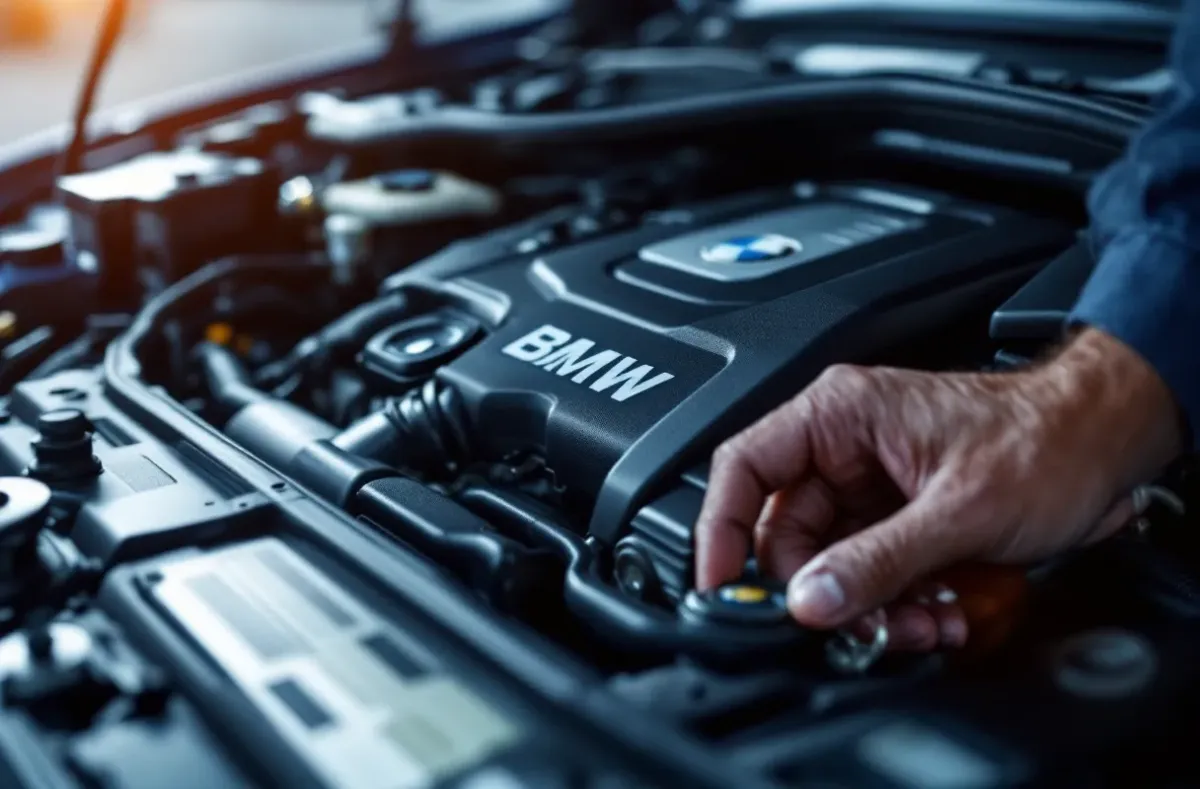
BMW Troubleshooting for BMW Engine Problems
BMW Troubleshooting for BMW Engine Problems
BMW vehicles are renowned for their performance, luxury, and engineering precision. However, like any complex machine, they can experience engine problems that may require troubleshooting. Understanding the symptoms and solutions associated with these issues can save time, money, and frustration. This article aims to provide a comprehensive guide on BMW troubleshooting, focusing on engine problems, their symptoms, and actionable solutions.
Understanding Common BMW Engine Problems

BMW engines are intricate systems that rely on various components working harmoniously. When issues arise, they can manifest in several ways, often leading to diminished performance or even complete engine failure. Here are some common engine problems associated with BMW vehicles:
1. Overheating Issues
Overheating is a frequent issue in many BMW models, often caused by a malfunctioning cooling system. This can stem from several factors, including:
Low coolant levels due to leaks
A faulty thermostat
A malfunctioning water pump
Clogged coolant passages
When the engine overheats, it can lead to severe damage, including warped cylinder heads or blown gaskets. Recognizing the symptoms early is vital to prevent costly repairs.
2. Oil Leaks
Oil leaks are another common engine problem in BMWs. They can result from:
Worn gaskets
Loose drain plugs
Damaged oil seals
Oil leaks can lead to low oil levels, which can cause engine wear and tear over time. Regularly checking your oil levels and looking for oil spots in your parking space can help identify leaks early.
3. Engine Misfires
An engine misfire occurs when one or more cylinders fail to fire correctly. This can lead to poor acceleration, reduced fuel efficiency, and increased emissions. Common causes of misfires in BMW engines include:
Faulty spark plugs
Worn ignition coils
Fuel delivery issues
Identifying a misfire can be challenging, but symptoms often include rough idling, hesitations during acceleration, or the engine light illuminating on the dashboard.
Symptoms of BMW Engine Problems

Recognizing the symptoms of engine problems is crucial for timely troubleshooting. Here are some prevalent signs that your BMW might be experiencing engine issues:
1. Unusual Noises
Unusual sounds from the engine compartment, such as knocking, tapping, or grinding, can indicate serious problems. These noises might signify issues with the engine’s internal components, such as bearings or valves.
2. Warning Lights
The dashboard warning lights are your car's way of communicating potential issues. The check engine light is particularly significant; it can indicate various problems, from minor issues like a loose gas cap to more severe engine troubles.
3. Decreased Performance
If you notice a decrease in power, acceleration, or overall performance, this could be a sign of engine problems. Issues such as clogged fuel injectors or air filters can lead to decreased efficiency.
4. Excessive Exhaust Smoke
The color of the exhaust smoke can provide valuable information about engine health. Blue smoke may indicate burning oil, while white smoke can signify coolant entering the combustion chamber. Black smoke often points to an overly rich fuel mixture.
Effective BMW Troubleshooting Techniques

When faced with engine problems, effective troubleshooting can help pinpoint the issue and lead to appropriate solutions. Here are several techniques to consider:
1. Conduct a Visual Inspection
Begin with a thorough visual inspection of the engine compartment. Look for signs of leaks, damaged hoses, or worn belts. Checking fluid levels can also provide insights into potential problems.
2. Utilize Diagnostic Tools
Modern BMWs are equipped with onboard diagnostics (OBD) systems. Using an OBD-II scanner for engine diagnostics can help read error codes that provide insights into engine issues. These codes can guide you toward the underlying problem, whether it’s related to fuel delivery, ignition systems, or emissions.
3. Perform Regular Maintenance
Routine maintenance is essential for preventing engine problems. Regular oil changes, air filter replacements, and spark plug inspections can help ensure your engine runs smoothly. Adhering to the manufacturer’s service schedule can prevent small issues from becoming significant problems. For more information on maintaining your vehicle, check out how preventive maintenance extends your vehicle life.
4. Consult with Professionals
If troubleshooting does not yield results, seeking professional assistance is advisable. Experienced technicians can diagnose complex issues that may not be apparent through standard troubleshooting methods. Utilizing specialized tools and their expertise can save time and prevent further damage.
Common Mistakes to Avoid in BMW Troubleshooting
When troubleshooting BMW engine problems, avoiding common pitfalls can save time and effort. Here are some mistakes to watch out for:
1. Ignoring Warning Signs
Ignoring warning lights or unusual sounds can lead to more severe damage. It is essential to address these signs promptly, as they often indicate underlying issues that need immediate attention.
2. Delaying Routine Maintenance
Neglecting routine maintenance can exacerbate existing problems. Regular check-ups and servicing can catch issues early, ensuring your BMW remains in top condition.
3. Using Non-OEM Parts
Using non-original equipment manufacturer (OEM) parts can lead to compatibility issues and potentially damage your engine. Always opt for high-quality parts designed specifically for your BMW model.
4. DIY Repairs Beyond Skill Level
Attempting repairs that exceed your skill level can lead to further complications. If unsure about a specific repair, it’s best to consult with a professional mechanic to avoid costly mistakes.
Conclusion: Mastering BMW Troubleshooting with SPEEDhaus
Understanding BMW troubleshooting for engine problems is essential for any owner or enthusiast. Recognizing symptoms, employing effective troubleshooting techniques, and avoiding common mistakes can help maintain your vehicle's performance and longevity. SPEEDhaus specializes in high-performance upgrades, precision maintenance, and expert diagnostics tailored for European and exotic car owners in the Oklahoma City area.
If you're facing engine problems or want to ensure your BMW runs optimally, consider reaching out to SPEEDhaus. Our team of experienced professionals is dedicated to helping you maintain the performance and handling of your vehicle. Learn more about our services or contact us today to learn more about how we can assist you in achieving the best for your BMW.

